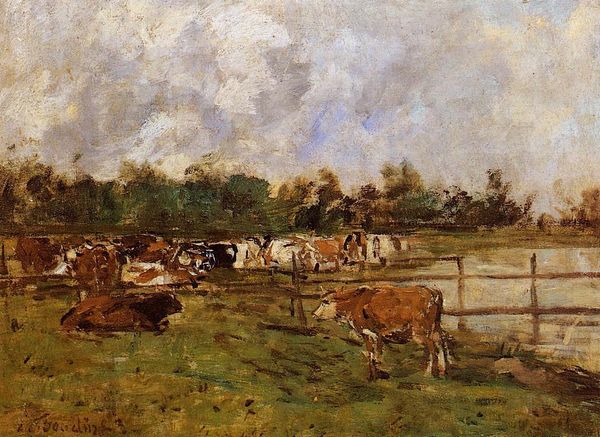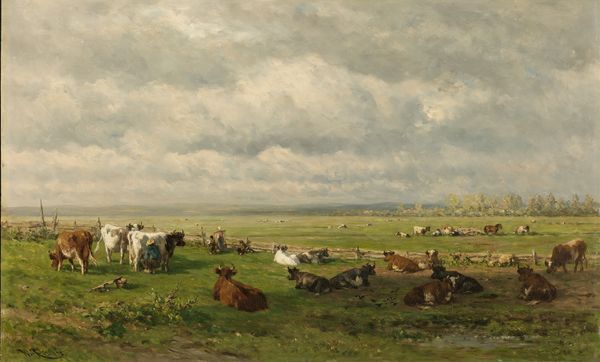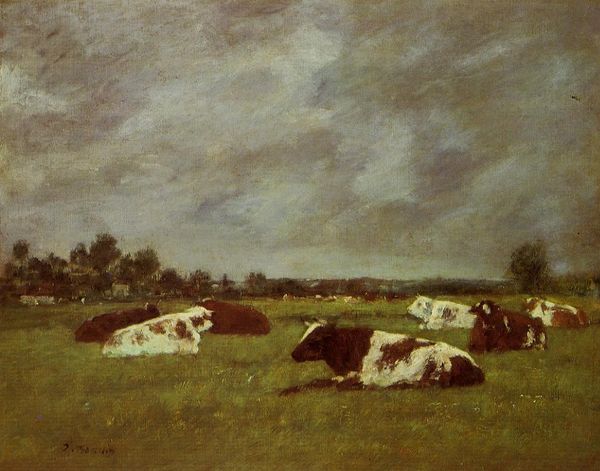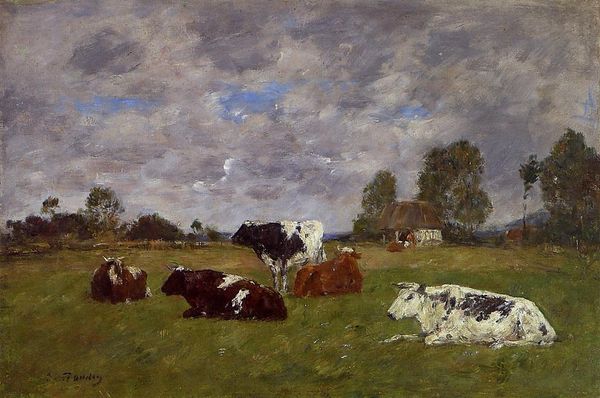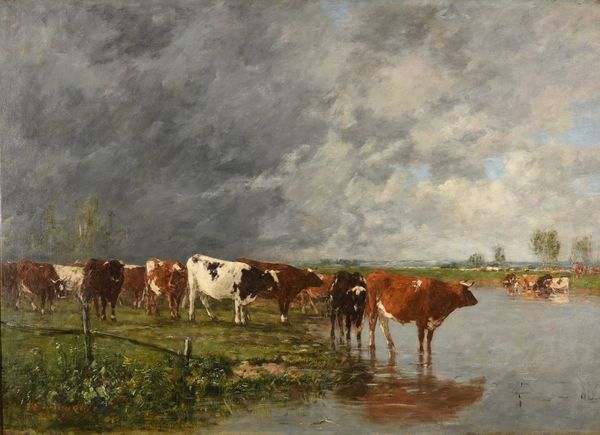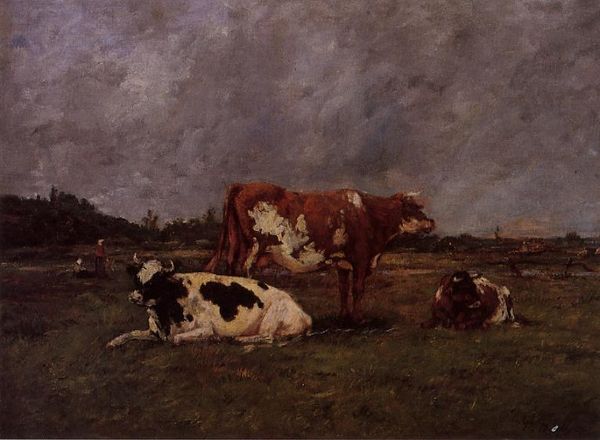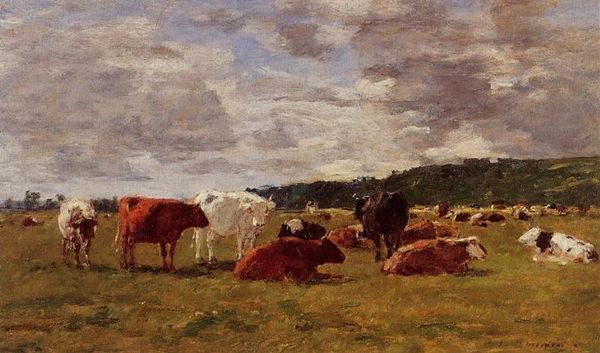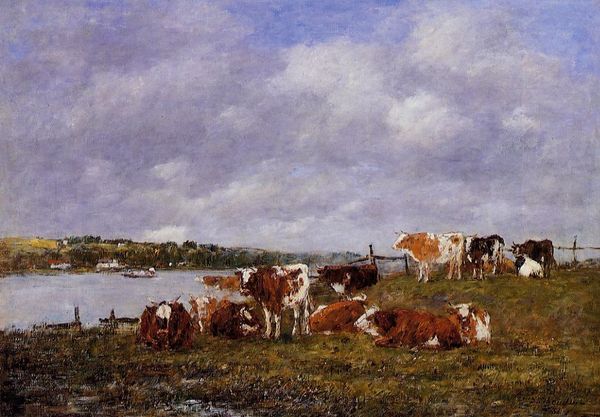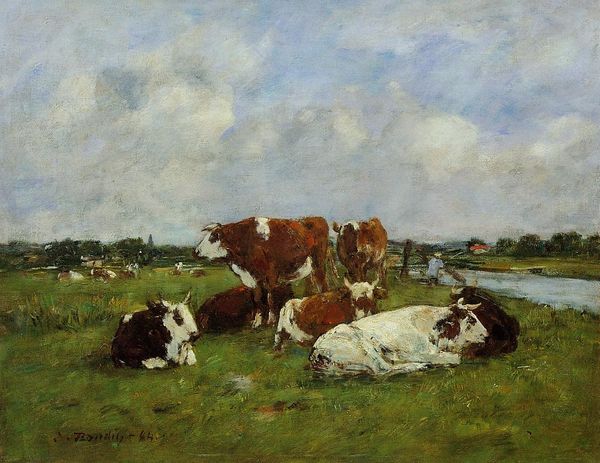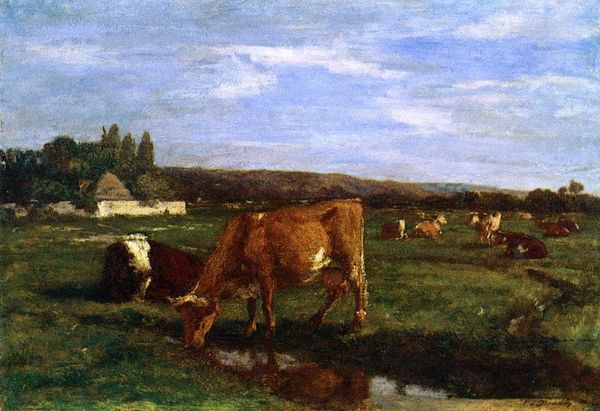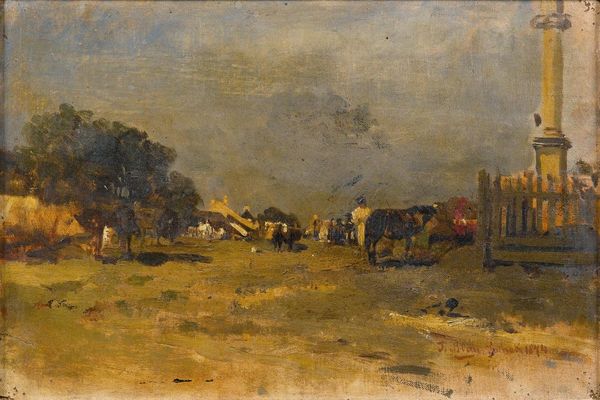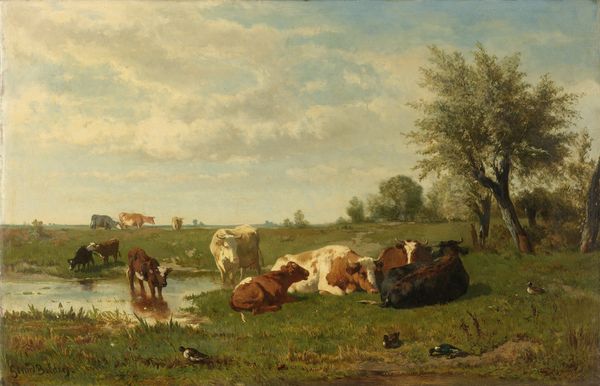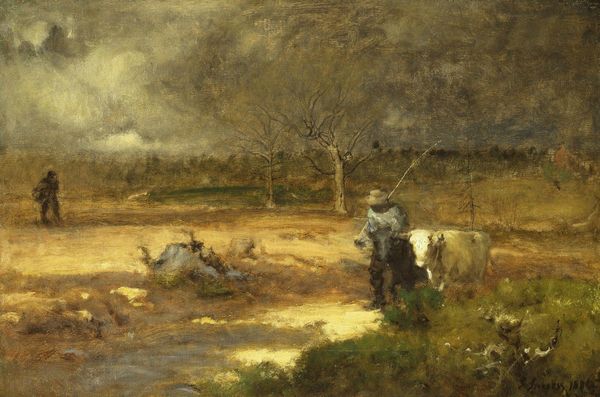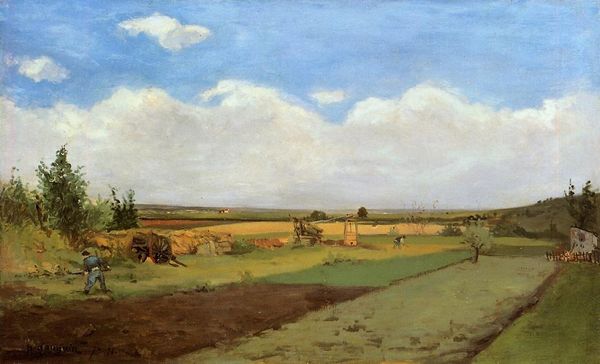
Copyright: Public domain
Eugène Boudin painted this pastoral scene with oils, capturing a group of cows resting in a field. The cow, a symbol deeply rooted in human history, carries layers of meaning, extending far beyond its practical role as a provider of nourishment. In ancient cultures, the cow was revered as a symbol of fertility, nurturing, and abundance. Think of Hathor in ancient Egypt, a goddess often depicted with bovine features, embodying motherhood and nourishment. This reverence can be traced through the ages, appearing in various forms in different cultures. Even today, the image of the cow evokes a sense of pastoral tranquility, an echo of a simpler, agrarian life. Boudin’s depiction of these placid creatures, resting under a turbulent sky, is a powerful force engaging viewers on a deep, subconscious level, reminiscent of archetypal memories. The animal’s association with nature’s bounty, its placid acceptance of the storm, creates an interesting tension in the viewer’s mind. Thus, the cow surfaces, evolves, and takes on new meanings in different historical contexts.
Comments
No comments
Be the first to comment and join the conversation on the ultimate creative platform.
